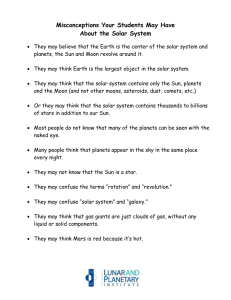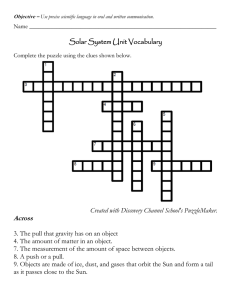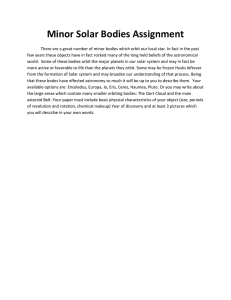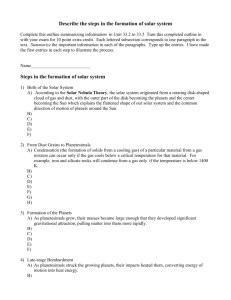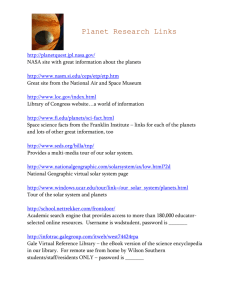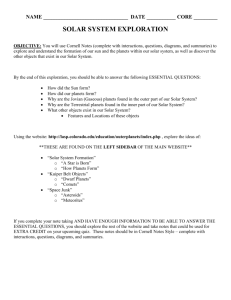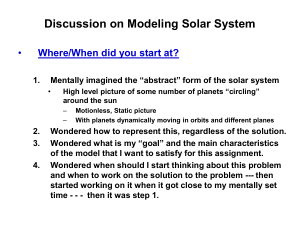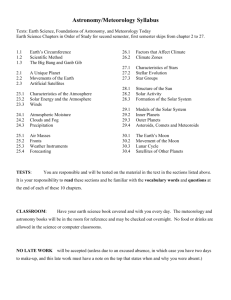Toilet Paper Solar System Lab and Data Analysis
advertisement
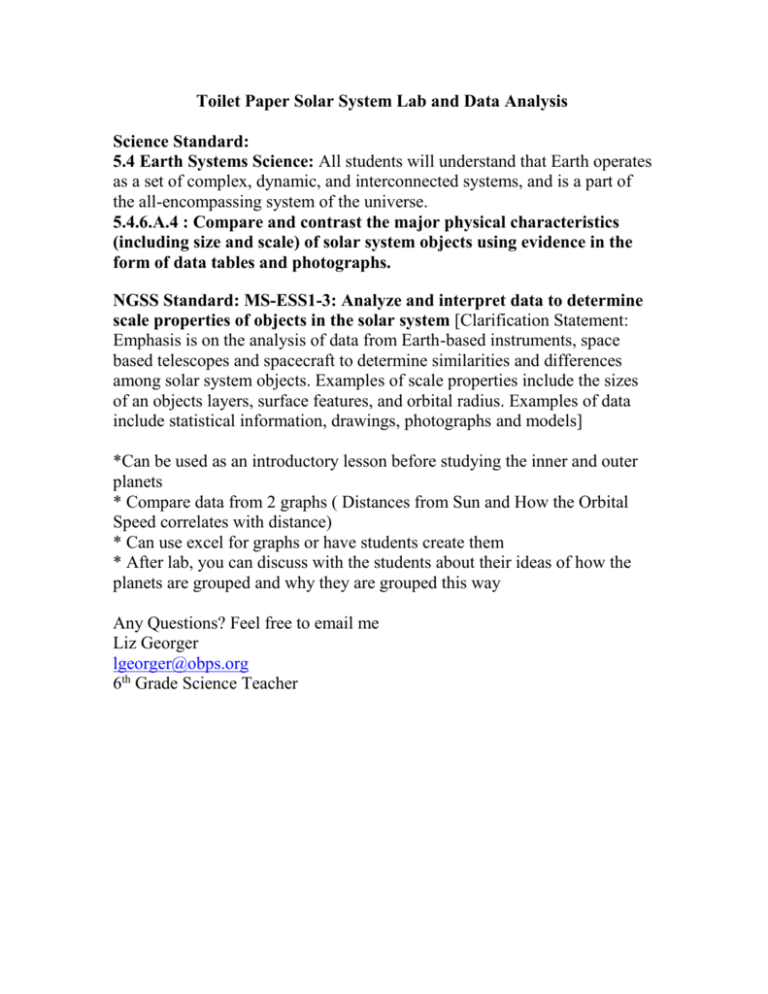
Toilet Paper Solar System Lab and Data Analysis Science Standard: 5.4 Earth Systems Science: All students will understand that Earth operates as a set of complex, dynamic, and interconnected systems, and is a part of the all-encompassing system of the universe. 5.4.6.A.4 : Compare and contrast the major physical characteristics (including size and scale) of solar system objects using evidence in the form of data tables and photographs. NGSS Standard: MS-ESS1-3: Analyze and interpret data to determine scale properties of objects in the solar system [Clarification Statement: Emphasis is on the analysis of data from Earth-based instruments, space based telescopes and spacecraft to determine similarities and differences among solar system objects. Examples of scale properties include the sizes of an objects layers, surface features, and orbital radius. Examples of data include statistical information, drawings, photographs and models] *Can be used as an introductory lesson before studying the inner and outer planets * Compare data from 2 graphs ( Distances from Sun and How the Orbital Speed correlates with distance) * Can use excel for graphs or have students create them * After lab, you can discuss with the students about their ideas of how the planets are grouped and why they are grouped this way Any Questions? Feel free to email me Liz Georger lgeorger@obps.org 6th Grade Science Teacher
